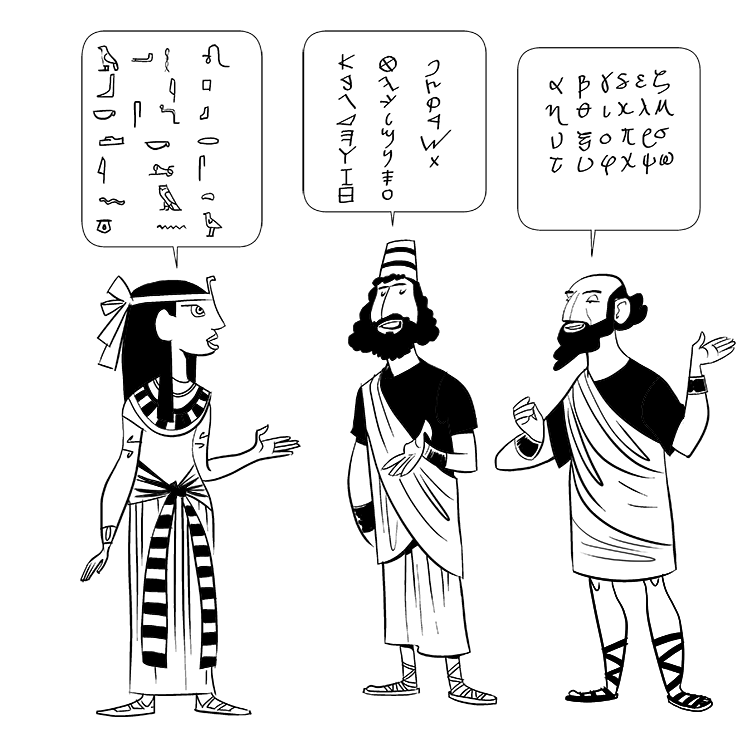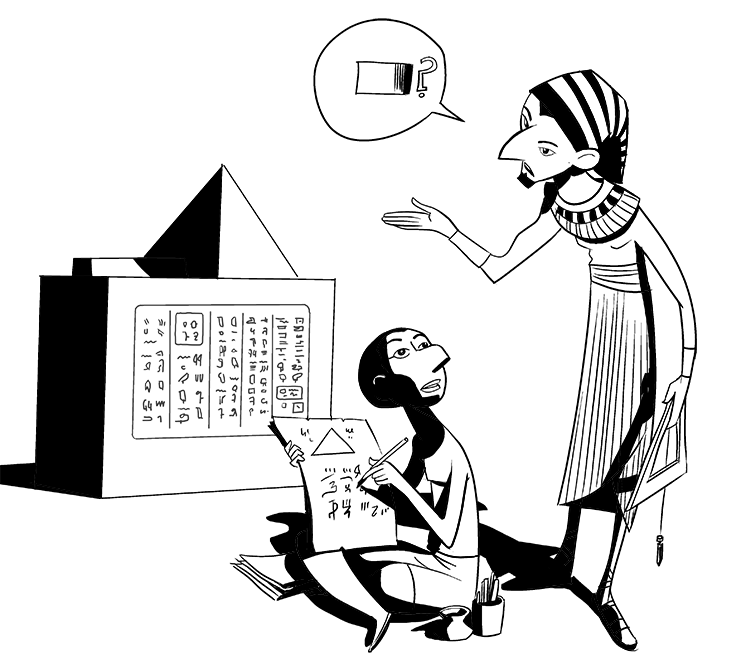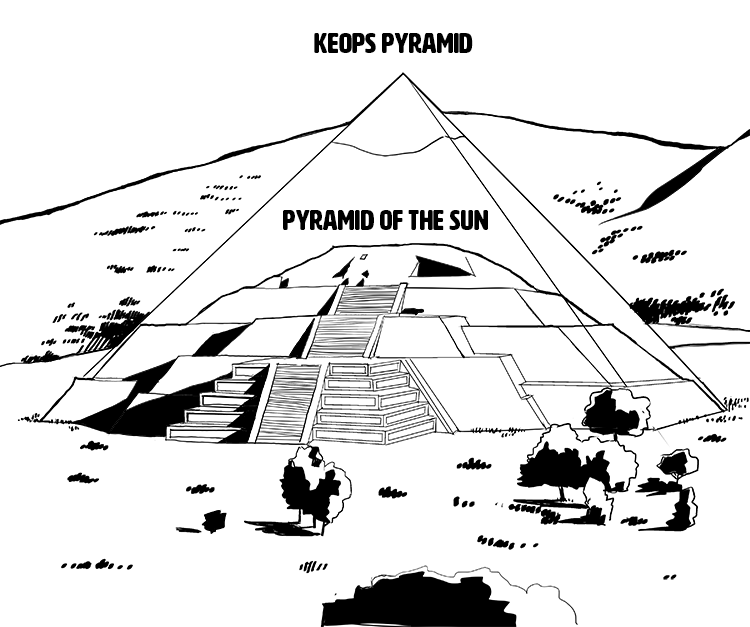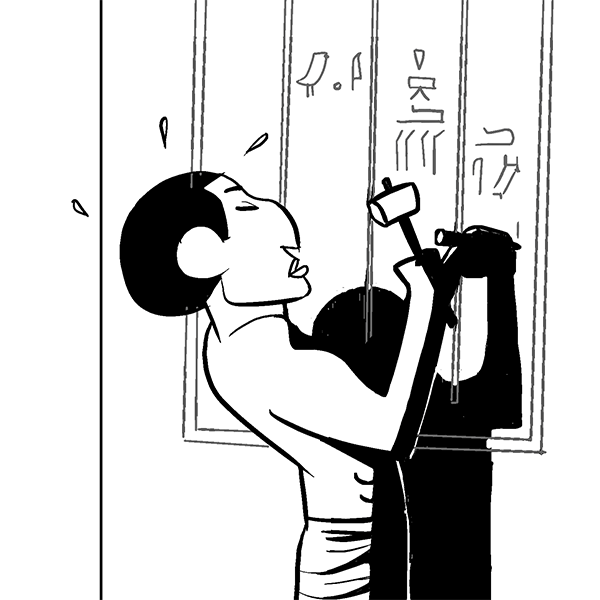Few ancient societies are more awe-inspiring to people today than Ancient Egypt. A rich supply of archaeological evidence combined with countless written records, towering pyramids, and perfectly preserved bodies (mummies) provide plenty of material for modern imaginations.
But this wonder is nothing new. In fact, people have been inspired by Egypt since its early days.
The many cultures that developed alongside Egypt — the Greeks, Phoenicians, Persians, Nubians, and, later, the Romans — all envied the wealth and power of ancient Egypt and sought to control it. Few were successful, but almost all of Egypt’s neighbors absorbed part of this great civilization’s customs and culture.
Yet Egypt’s ancient society rose and fell thousands of years ago, so why is there still so much interest in these people and the civilization they built?
How could people who lived so long ago still be relevant?
Well, all ancient societies have contributed to the modern world in some way or another. But Egypt is special because it was so rich and so powerful for so long.
In fact, without Egypt’s gifts to humanity, our world would be a very different place.

Phonetic Alphabets
Humans’ ability to communicate through writing has been a driving force of human progress in both ancient and modern times. It has allowed people to communicate with one another across great distances, as well as generations.
But to be able to write and communicate effectively through writing, we need alphabets. Yet the first alphabets did not represent sounds like they do today but rather ideas and concepts. This made it difficult for language to grow, since every new idea needed a new symbol, and these symbols were often complex and difficult to learn.
The Ancient Egyptians were the first people to use an alphabet based on the sounds they spoke. This is also known as a phonetic alphabet. Such a system of writing was unheard of in the ancient world, but it soon became the norm.
Inspired by the Egyptians, the Phoenicias — a society based in modern-day Israel — created their own phonetic alphabet. And this influenced the Greeks to do the same.
Greece would go on to become one of the most intellectually and scientifically advanced societies of the ancient world, and their contributions to modern society are numerous.
But without language, it’s hard to imagine any of this happening. So while it’s common to thank the Greeks for all they did for humanity, the Egyptians deserve some of the credit for introducing the phonetic alphabet to their neighbors and to the world.

Paper
The ability to write has been critical to humanity’s development. But just knowing how to write isn’t enough. One needs something to write on.
In the civilizations that preceded Ancient Egypt, stone was the primary medium for writing. But this had its obvious limitations. Not only is it heavy and difficult to move, but writing on it requires special tools and lots of hard work.
This changed when the Egyptians discovered papyrus. A reed-like plant that grew in abundance along the banks of the River Nile, it could be ground down into a pulp that could then be made into paper.
Papyrus first emerged in the ancient world around 3000 BC. But making it was difficult and labor-intensive. Over time, methods improved and papyrus became more available.
By 500 BC, it was the preferred writing material for people living across North Africa and the Mediterranean. It was also one of Egypt’s most important exports.
The Greeks, who by this time were flourishing, were some of the biggest buyers of papyrus. In fact, many of the famous Greek philosophers, scientists, and mathematicians who changed our world so much could only write their work down and share it with the world thanks to Egyptian papyrus.
Who knows how much they would have been able to share if they had to record everything on stone using a chisel.
Eventually, papyrus paper was replaced by paper made from tree bark. But the Egyptians were first, and the world has never been the same since.

Mathematics
Alongside the ability to write, humans’ ability to do math has played a critical role in the development of human society.
Thanks to math, societies around the world have been able to build numerous structures, count their populations and goods, develop money systems to facilitate trade, and, in more modern times, fly and travel to the moon.
All of the great ancient civilizations knew how to do math to some extent, and each one made a different contribution to our understanding of numbers.
The Ancient Egyptians were one of the first civilizations to learn how to multiply and divide, two skills that are extremely important for both trade and government.
But their skills went even further. Their ability to construct large buildings, such as the many pyramids that stand along the Nile, show that they had a tremendous understanding of geometry.
In fact, it’s believed that Pythagoras, the great Greek philosopher who, next to Euclid, is considered one of the fathers of modern geometry, was inspired by the pyramids when he traveled to Egypt.
From there, he developed his theorem for calculating the length of the sides of a right triangle, something that is still an integral part of modern mathematics.
Math for Taxes
Interestingly, the Egyptians also taught the world that math could be used for things other than just trade and construction. Specifically, they used it to help calculate taxes.
All the land in the Nile was “owned” by the pharaoh, the term used for the kings of Ancient Egypt. But the pharaoh couldn’t manage all this land by himself, so he would divide it up and then give it to the many powerful families that helped him rule. In return, they had to provide a certain percentage of their harvest to the king as a tax.
The farmland in Egypt was all located next to the Nile River. Initially, to divide it up, the pharaoh drew lines on a map that cut the land into squares. But not all of this land could support farming each year since the Nile never flooded exactly the same way from one year to the next.
So, to make things more fair, the nobles in charge of these lands could file what was effectively an ancient tax return. They did this by calculating the surface area of the land that could not be used for farming and then subtracting that from the total area of the land they controlled. This would adjust how much tax they owed to something that was more fair.
Of course, these calculations were only estimates.
The Egyptians knew how to calculate the area of triangles and rectangles, and they could also estimate the area of a circle by drawing a hexagon inside of it. But they didn’t know how to determine the area of more irregular shapes. No one’s perfect!
However, even without this ability, the Egyptians were able to calculate the surface area of large spaces fairly accurately, showing off their math skills and teaching the world a new way of using numbers.
Later civilizations, such as the Romans, would do something similar.
In fact, this system is still used in some areas of the world today, reminding us that the legacy of the Ancient Egyptians is still very much alive.

Medicine
Compared to what is possible today, ancient medicine was simplistic and at times a bit barbaric. But placed within the context of their time, the Ancient Egyptians were excellent doctors.
Probably their most important contribution was in the preservation of bodies. The Egyptians believed that a person’s body went with them to the afterlife when they died, and so they went through great efforts to preserve corpses. This process was called mummification, and the preserved bodies are known as mummies.
The Egyptians were so good at this that bodies found thousands of years after they were mummified were perfectly preserved. Even the person’s hair and nails remained!
This practice is not really a part of modern culture, but the science behind their work is some of the best ever conceived. So, if you ever want to preserve a body for thousands of years, look to the Egyptians!
Another thing the Egyptians taught the world was to keep detailed medical records. Egypt was one of the first civilizations to experiment with surgery and the use of herbs and other plants for medicine. To keep track of what worked and what didn’t, they wrote almost everything down on their papyrus paper. This knowledge made its way to Greece and other areas of the ancient world, where it was expanded.
Of course, the techniques they used are no longer in practice. But the Egyptians helped people realize how important it was to keep track of their attempts to cure the many things that threaten human life.

Pyramids
The Egyptians were not the only ancient civilization to build pyramids. Most notably, the Aztecs and Mayans of modern Mexico also built them.
But they did so thousands of years after the Egyptians, and their structures were much smaller. Thanks to their size, the Egyptian pyramids have long been considered some of the most impressive feats of human engineering.
Today, the pyramid lives on thanks mainly to the fame Egypt bestowed upon them. For example, there is a famous glass pyramid just outside the Louvre art museum in Paris, and there is another one at the Luxor Hotel and Casino in Las Vegas. There’s no doubt that the architects behind these structures were looking to replicate what their Egyptian ancestors had done.
If nothing else, the presence of these structures reminds us that we as humans are connected through both time and space. And considering the Egyptians built these massive structures with nothing more than crude hammers, ropes and pulleys, and the brute strength of tens of thousands of people, they are also a reminder that people can accomplish almost anything they want.
Egypt Lives Forever
Although Ancient Egyptian civilization flourished thousands of years ago, its presence can still be felt today. Much of their influence is buried in the traditions of Greece and Rome. But this should not take away from what they have given to humanity. In fact, were it not for the Ancient Egyptians, our modern world would be very different indeed.
Written by Matthew Jones
Illustrated by Pablo Velarde Diaz-Pache
